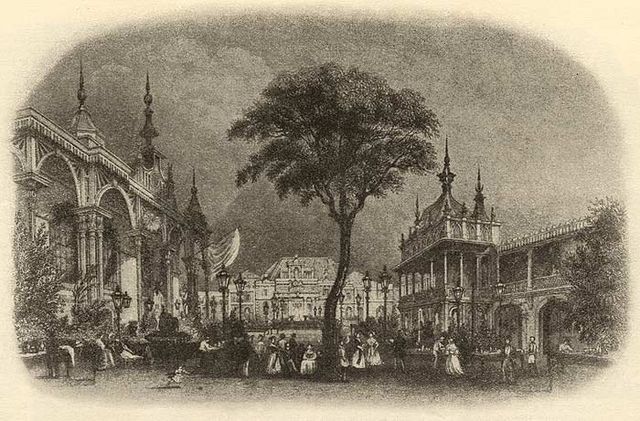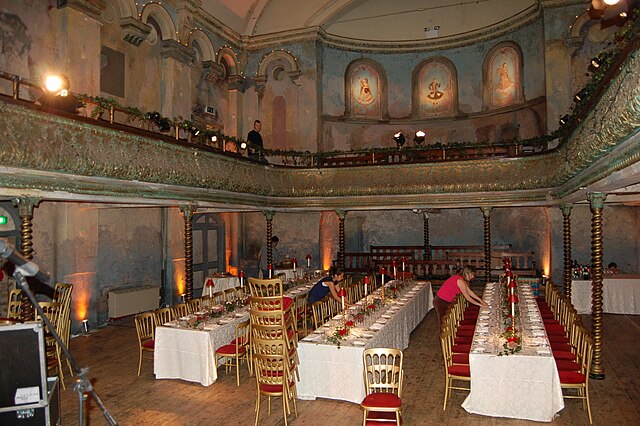Thomas Henry Sargent, known professionally by his stage name Max Miller and billed as The Cheeky Chappie, was an English comedian often considered the greatest stand-up of his generation. He came from humble beginnings and left school at the age of twelve. At the outbreak of the First World War, he volunteered for the army. During his time in the forces, he started a troupe concert party. On leaving the army, he took up work as a light comedian, dancer, and singer. He toured extensively, appearing in variety, revues and by the early 1930s reached the top of the bill in the large music halls including the London Palladium.
Bronze statue of Miller at the Pavilion Gardens, Brighton
Commemorative plaque at 160 Marine Parade, Brighton (2006)
Tablet on wall of Garden of Remembrance, Downs Crematorium, Brighton
Music hall is a type of British theatrical entertainment that was most popular from the early Victorian era, beginning around 1850, through the Great War. It faded away after 1918 as the halls rebranded their entertainment as variety. Perceptions of a distinction in Britain between bold and scandalous music hall entertainment and subsequent, more respectable variety entertainment differ. Music hall involved a mixture of popular songs, comedy, speciality acts, and variety entertainment. The term is derived from a type of theatre or venue in which such entertainment took place. In North America vaudeville was in some ways analogous to British music hall, featuring rousing songs and comic acts.
The Eagle Tavern in 1830
The Oxford Music Hall, c. 1875
The interior of Wilton's Music Hall (here, being set for a wedding). The line of tables give some idea of how early music halls were used as supper clubs.
Interior of the Canterbury Hall, opened 1852 in Lambeth







